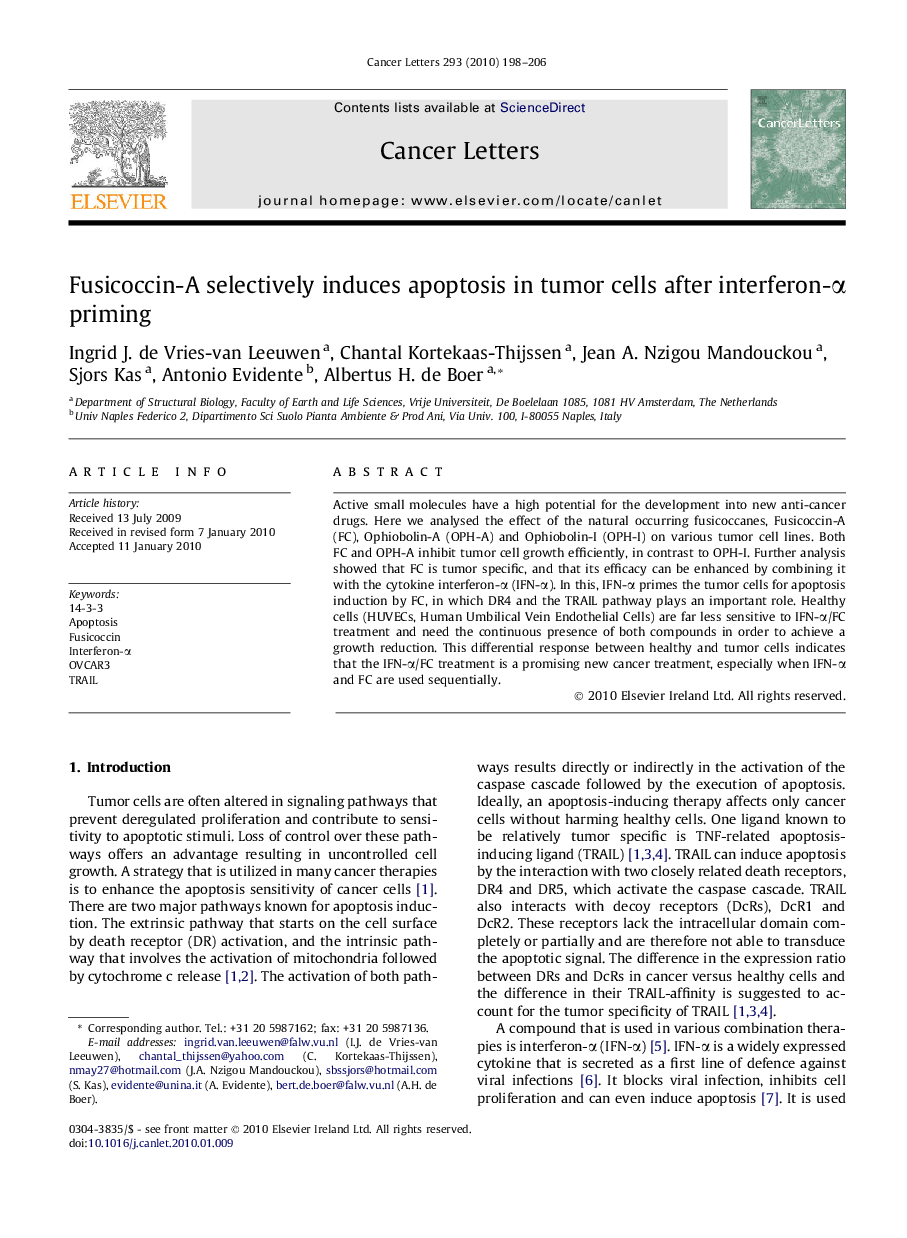| Article ID | Journal | Published Year | Pages | File Type |
|---|---|---|---|---|
| 2114016 | Cancer Letters | 2010 | 9 Pages |
Active small molecules have a high potential for the development into new anti-cancer drugs. Here we analysed the effect of the natural occurring fusicoccanes, Fusicoccin-A (FC), Ophiobolin-A (OPH-A) and Ophiobolin-I (OPH-I) on various tumor cell lines. Both FC and OPH-A inhibit tumor cell growth efficiently, in contrast to OPH-I. Further analysis showed that FC is tumor specific, and that its efficacy can be enhanced by combining it with the cytokine interferon-α (IFN-α). In this, IFN-α primes the tumor cells for apoptosis induction by FC, in which DR4 and the TRAIL pathway plays an important role. Healthy cells (HUVECs, Human Umbilical Vein Endothelial Cells) are far less sensitive to IFN-α/FC treatment and need the continuous presence of both compounds in order to achieve a growth reduction. This differential response between healthy and tumor cells indicates that the IFN-α/FC treatment is a promising new cancer treatment, especially when IFN-α and FC are used sequentially.
